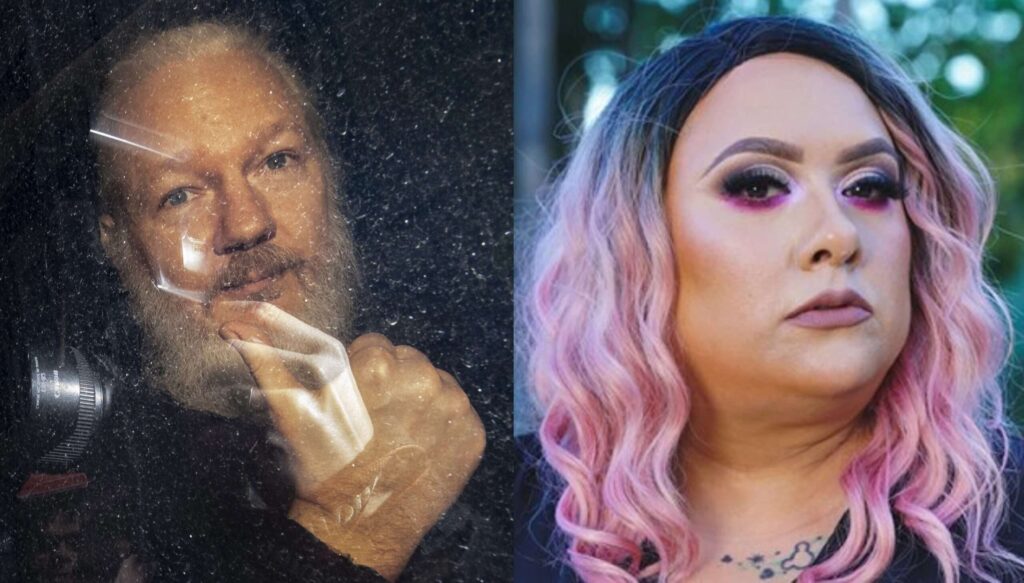WikiLeaks founder Julian Assange was jailed for five years in London, and Texas journalist Priscilla Villarreal was only briefly held in Webb County Jail. However, both were arrested for publishing information that government authorities wanted suppressed.
Mr. Assange and Mr. Villarreal argue that criminalizing such conduct violates the First Amendment. In both cases, the merits of that claim are obscured by the constitutionally extraneous question of who qualifies as a “real” journalist.
Assange, an Australian national, was brought to the United States under a federal indictment charging him with violating the Espionage Act for obtaining and publishing classified documents leaked in 2010 by former U.S. Army intelligence analyst Chelsea Manning. He is fighting his extradition. She is serving a long time in prison because federal prosecutors say she will likely serve time if convicted.
President Joe Biden said he was “considering” the Australian government's request to drop the case against Assange. But insulting America's allies is not the only reason to reconsider this prosecution. This prosecution poses a serious threat to press freedom by criminalizing common acts of journalism.
All but one of the 17 charges against Assange relate to obtaining or disclosing “national defense information” and carry a maximum penalty of 10 years in prison. But all news outlets that published stories based on Manning's leaked confidential State Department cables and military files are guilty of the same crime.
More generally, for reporters covering national security, access to and release of classified information is a boon. John Demers, then the head of the Justice Department's national security division, implicitly acknowledged that reality in 2019, saying Assange was “not a journalist” and there was no need to worry about the precedent set by the case. He assured reporters.
The U.S. Court of Appeals for the Fifth Circuit took a similarly dark view of Villarreal in January when it dismissed her lawsuit against Laredo prosecutors and police officers who orchestrated her 2017 arrest. They alleged that she violated Texas Penal Code Section 39.06(c). The law is a vague law that makes it a felony to request or obtain nonpublic information from government officials with “intent to obtain advantage.”
Police said Villarreal committed the crime after asking Laredo police officer Barbara Goodman to confirm information about a public suicide and traffic fatality. As interpreted by the Laredo Police Department, Section 39.06(c) applies even more broadly than the Espionage Act, making it a felony for reporters to solicit information that is deemed exempt from disclosure under the Texas Public Information Act .
The Fifth Circuit rejected the idea that Villarreal was a “martyr for journalism,” ignoring the alarming implications of criminalizing questions asked by reporters. The majority opinion, written by Justice Edith Jones, said Villarreal, an unqualified independent journalist, posted unfiltered reports on Facebook instead of publishing vetted and edited articles in “mainstream, legitimate” news outlets. full of contempt for
Jones appeared unaware of what daily news reporting across the country entails and accused Villarreal of relying on “back channel sources” and “capital.”[ing] But such criticism, like the ruling that Assange is “not a journalist,” fundamentally misunderstands the freedom of the press as it applies to everyone involved in mass communication.
The Fifth Circuit's decision prompted a four-person dissenting opinion and seven justices signed or joined, and it's not hard to see why. Justice James C. Ho wrote, “If the First Amendment means anything, it certainly means that citizens have the right to question and criticize public officials without fear of imprisonment.'' means,” he wrote.
In a petition filed last week on behalf of Villarreal, the Individual Rights Expression Foundation asks the U.S. Supreme Court to vindicate that right. “Villarreal was sent to prison for basic journalistic charges,” the article states. “Whatever opinions one may have about Villarreal's journalistic ethics, they have no constitutional weight.”
© Copyright 2024 by Creators Syndicate Inc.


